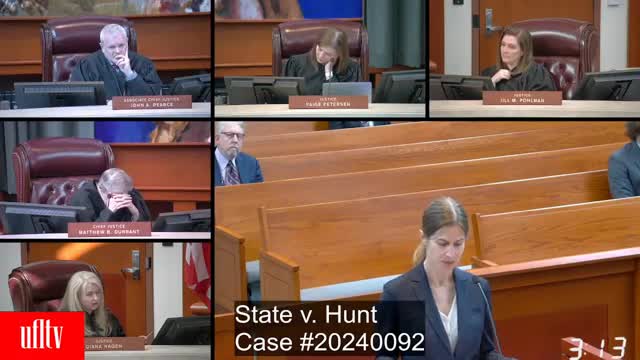Court Reviews Jury Instruction Discretion in Self Defense Case
July 20, 2025 | Utah Appellate Court Collection, Utah Family Law District Court Collection, Utah District Courts, Utah Judicial Branch, Utah
Thanks to Excel Chiropractic and Scribe from Workplace AI , all articles about Utah are free for you to enjoy throughout 2025!

This article was created by AI using a video recording of the meeting. It summarizes the key points discussed, but for full details and context, please refer to the video of the full meeting. Link to Full Meeting
The debate focused on the clarity of jury instructions related to self-defense, particularly the distinction between "perfect" and "imperfect" self-defense. One of the justices noted that the proposed instruction could potentially confuse jurors by introducing a second set of guidelines that overlap with existing self-defense instructions. This concern raised questions about the necessity and clarity of the proposed instruction, which aimed to clarify key points of self-defense law.
A significant point of contention was whether the district court had made legal errors in its reasoning, particularly regarding references to older statutes that may no longer apply to current self-defense laws. The defense argued that the court's reliance on outdated legal precedents was a mistake, asserting that the language from these older cases still holds relevance in understanding the current statute.
The justices also discussed the implications of the court's discretion in modifying jury instructions. They emphasized that while judges have the authority to adjust language for clarity, any misunderstanding of the law could undermine the validity of their decisions. This aspect of the discussion underscores the importance of precise legal interpretation in ensuring fair trials.
As the court deliberates on these issues, the outcome of State v. Hunt could have significant implications for how self-defense cases are handled in Utah, particularly in terms of jury instructions and the clarity of legal standards. The decision will likely resonate with residents, as it addresses fundamental questions about justice and the legal process in their community.
Converted from Utah Supreme Court State v. Hunt May 7, 2025 meeting on July 20, 2025
Link to Full Meeting
Comments
View full meeting
This article is based on a recent meeting—watch the full video and explore the complete transcript for deeper insights into the discussion.
View full meeting

